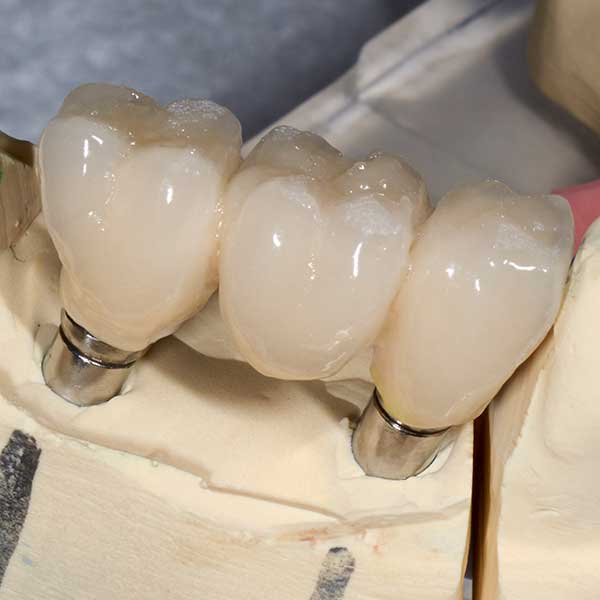Dental Implants
 Dental implants are a common solution whereby a dentist places false teeth into the jaw to replace missing adult teeth.
Dental implants are a common solution whereby a dentist places false teeth into the jaw to replace missing adult teeth.
There are a few important things to note for those who are looking at dental implants as an option, so be sure to learn everything you can about the procedure and talk through any questions or concerns with your dentist or oral surgeon before you begin.
What are dental implants?
Dental implants are a stable and permanent option for those who have lost their own natural teeth. They include a replacement for the actual root, which means that the false tooth is anchored in the jaw itself. This anchor is what makes dental implants different from other replacement options such as dentures, which are held in place by the remaining teeth rather than the jaw.
There are a large number of benefits to dental implants. For one, they look very similar to real teeth, so there’s less concern about them seeming out of place or unnatural. On top of that, dental implants also feel like natural teeth, as they won’t slip in your mouth while you’re talking, and they work perfectly for eating. They tend to be a comfortable option, and cleaning them is just like brushing your own teeth.
Finally, implants are also long-lasting. Once they’re in, you rarely need to worry about them causing issues again, and you’ll quickly forget that they’re not an organic tooth. With the proper care, many dental implants can even last a lifetime.
The way it works is that your treatment professional will open the gum, drill into the jaw bone and place the implant. Following this, you will wait several months (each case can vary) for the bone and gum tissue to heal around the implant, after which your dental professional will attach the false tooth. The experience is much like any oral procedure, where you will receive anaesthetic during the treatment, and you can take regular over-the-counter pain killers for any discomfort afterwards.
Who can get dental implants?
Even if you are missing adult teeth, you will still need to discuss with your dentist if you’re a good candidate for dental implants.
Ideally, candidates for implants will be in good health generally, and will also have good oral health. In many cases, those who have lost permanent teeth have done so through poor oral health with tooth decay or issues such as gingivitis. If you and your dentist are unable to bring your mouth into a state of good health after losing the teeth, you may not be suited for this treatment.
This is because the jaw and gum have to be strong enough to support the implant. The gum tissues must be free of periodontal disease, and the bone in the jaw must offer adequate strength. Your dentist will be able to determine bone strength with a radiograph and CT scan, but even if the bone is not up to standard, you may be able to receive a bone graft to prepare the site for a dental implant.
Are there any possible problems with dental implants?
In some cases, your jaw and gum will ‘reject’ the implant, which is where the device doesn’t properly integrate with the bone. This is rare, and even when it does happen, you will likely receive a replacement that does work.
Rarer issues include gum infections or the potential to break the implant, just as you may break a natural tooth.
If you lose a tooth or several teeth, you can speak to your dental professional about the possibility of getting dental implants.
If you’d like more information on dental implants, book an appointment with Palmerston Dental Surgery on 08 8932 1544.

